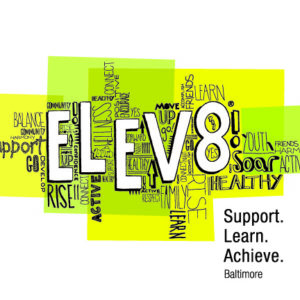Children & Youth Community Schools
It’s All Happening at School
United States | 2007 - 2014
Poverty. Discrimination. Poor educational opportunities. Limited access to quality healthcare. All are factors that can stymie a child’s future. To help young people overcome these challenges, some cities in the United States operate community schools that integrate academics and related supports with services that address health and social needs of their students. These schools also engage parents in activities that enable them to play a more active role in their children’s education, helping contribute to building stronger communities.
After making initial investments in other well-known and promising alternative school models, Atlantic chose to focus on Elev8, a national model operating in a select number of cities. Elev8 schools:
- Extend learning opportunities for students beyond the classroom and traditional school year
- Provide high-quality school-based health services to children and their families
- Encourage parents to be actively involved in their children’s education
- Offer family supports and resources designed to promote economic stability, good health and continuing education
From 2007-2014, Atlantic’s investments in Elev8 totaled $115 million.
What We Learned From This Work
School system reform in low-income communities is complex, difficult and needs the right leadership. Funders taking on this work need to be patient, willing to stick with it for many years and to provide the appropriate level of support. Those are lessons we learned the hard way. We changed our school reform strategy mid-course and didn’t champion the project for sustained funding and resources. While we didn’t succeed at developing a widely-adopted national model, students who were enrolled in Elev8 schools reported high levels of efficacy, liked schools they attended, and valued school highly. Another lesson: funders and other partners can be a stabilizing force in schools and districts where there are high turnovers of principals and superintendents.
Evidence showing success from the approach of integrating health services and family supports in schools can encourage principals to invest some of their discretionary funds to support these programs.
Funding alone doesn’t institutionalize a program, initiative or movement. Identifying the right leaders, building capacity, and participation from staff and community participants are crucial to success and sustainability.
Elevating the Solution
High Marks
Preliminary evaluation results show that in some fully resourced Elev8 full service community schools, attendance rates and test scores improved and truancy rates dropped.
Spreading the Lessons
As a result of advocacy efforts by the School Based Health Alliance and others, the Affordable Care Act included $200 million for the renovation and construction of school-based health centers in select communities nationwide.
Community Schools on the Rise
Between 2007 and 2013, the number of places – cities, counties or districts – advancing the community school approach nearly tripled to 85 from 33.
Here’s Who’s Helping Write the Next Chapter in This Continuing Story
Find out who’s on the forefront of the ongoing work
Key Co-funders in Elev8 are other peer foundations as well as government at the local, state and federal levels.
Some key recent funders include:
Robert Wood Johnson Foundation
Annie E. Casey Foundation
W.K. Kellogg Foundation
U.S. Department of Labor
AmeriCorps
State of Illinois
State of New Mexico
State of New Mexico Human Services Department
City of Oakland
Oakland Unified School District
Maryland State Department of Education (21st CCLC)
Family League of Baltimore City
The Stories, Data and Lessons That Drive Change
Summaries of Case Studies, Evaluations & Reports
-
Elev8 Final Report
Source: Research for Action & McClanahan Associates
An evaluation of Elev8, a full-service community school model that Atlantic began supporting in 2008, shows that despite the implementation challenges faced over the course of the initiative, the program served thousands of students and families. At the same time, evaluators found that the effort…
Resource type: Research Report
-
School-Based Health Centers in an Era of Health Care Reform: Building on History
Source: The University of California, San Francisco, Department of Family Health Care Nursing
School-based health centres (SBHCs) play an important role in improving the health and well-being of youth, according to an article in Current Problems in Pediatric and Adolescent Health Care Journal prepared by researchers at the University of California, San Francisco, Department of Family Health Care Nursing.…
Resource type: Research Report
-
Brief: Elev8 Chicago: Demonstrating the Power and Potential of Community Schools
Source: Elev8 Chicago
Communities across the country are grappling with the challenge of preparing young people for a bright future. Elev8 Chicago – an Atlantic-supported initiative to strengthen community schools by providing, school-based health services and after-school programmes and enhancing family engagement – has made a positive difference…
Resource type: Research Report
-
Elev8 Baltimore Review
Source: Elev8
The Elev8 Baltimore Review, a publication from Atlantic grantee Elev8 Baltimore, shows how its range of programs are changing the odds for children, youth, and families in East Baltimore. From after-school and summer enrichment programs to vital school-based health services and resources that help parents…
Resource type: Research Report
You Might Also Be Interested In
-
School Discipline Reform
Atlantic launched an initiative to end unfair school discipline policies and keep vulnerable children in school and on track to graduation and college.
-
Prevention & Early Intervention
Heading off problems before they take root in children’s lives can help young people grow and flourish.
-
Advancing Children’s Rights
Children have rights to education, health, adequate standard of living, protection from abuse and neglect, and equality and non-discrimination.
-
Race & Criminal Justice Reform
One in three black men can expect to spend time in prison. We've supported efforts to reduce racial inequality in the criminal justice system.






